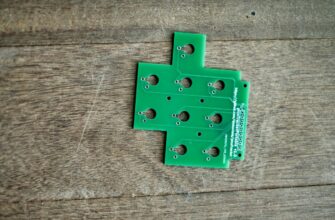Introduction: The Rise of BUSD to Naira P2P Trading
In Nigeria’s fast-evolving crypto landscape, converting Binance USD (BUSD) to Naira via peer-to-peer (P2P) platforms has become a financial lifeline for many. With traditional banking restrictions and volatile currency dynamics, P2P exchanges offer Nigerians a decentralized, efficient way to access global markets. This guide explores everything from platform selection to security best practices, empowering you to trade BUSD for Naira confidently.
What is BUSD to Naira P2P Exchange?
BUSD to Naira P2P trading involves directly exchanging the stablecoin Binance USD (pegged 1:1 to the US dollar) for Nigerian Naira with verified individuals, bypassing centralized intermediaries. Platforms like Binance P2P, Paxful, and Remitano act as escrow services: they hold the seller’s BUSD until the buyer confirms Naira payment via bank transfer or mobile money. This method thrives in Nigeria due to:
- Circumvention of bank limitations on crypto transactions
- Real-time exchange rates often better than traditional forex
- 24/7 accessibility without bureaucratic delays
Top 5 Benefits of P2P BUSD/Naira Trading
- Lower Fees: Avoid hefty bank charges; most P2P platforms charge 0%–1% per trade.
- Speed & Flexibility: Transactions complete in minutes, with multiple payment options (bank transfer, Opay, Palmpay).
- Financial Inclusion: Unbanked users can participate via mobile money wallets.
- Rate Negotiation: Buyers/sellers set custom rates, maximizing value.
- Zero Volatility Risk: BUSD’s dollar peg shields traders from crypto market swings during transfers.
How to Trade BUSD for Naira on P2P: Step-by-Step
- Choose a Platform: Sign up on Binance P2P, Paxful, or Remitano and complete KYC verification.
- Fund Your Wallet: Transfer BUSD from your external wallet to your P2P account.
- Create an Offer: As a seller, list your BUSD amount and preferred Naira rate. As a buyer, browse existing offers.
- Initiate Trade: Select a counterparty with high ratings, then lock the deal. The platform holds BUSD in escrow.
- Send/Receive Naira: Share payment details (account number/phone). Once Naira is received, confirm to release BUSD.
- Rate Your Experience: Leave feedback to build community trust.
Best P2P Platforms for BUSD to Naira in 2024
- Binance P2P: Largest liquidity, 0% fees, and integrated escrow. Supports GTB, Zenith, UBA transfers.
- Paxful: Over 300 payment methods, including gift cards. Features a dispute resolution team.
- Remitano: User-friendly interface with auto-matching. Popular for quick trades under ₦500,000.
- NoOnes: Low minimum trade amounts (from 0.001 BUSD), ideal for beginners.
7 Essential Safety Tips for P2P Traders
- Verify counterparty ratings (aim for 95%+ positive feedback).
- Never communicate or pay outside the platform—escrow protection is voided.
- Use screen recordings for payment proof during disputes.
- Enable 2FA on your exchange and email accounts.
- Start with small trades to test new partners.
- Beware of “too good to be true” exchange rates.
- Double-check bank details—scammers often use similar account names.
Frequently Asked Questions (FAQ)
Q: Is BUSD to Naira P2P trading legal in Nigeria?
A: Yes. While Nigeria restricts banks from crypto transactions, P2P trading remains legal and unregulated for individuals.
Q: How long does a typical BUSD/Naira P2P trade take?
A: Most transactions complete within 10–30 minutes after payment confirmation.
Q: Can I trade without a bank account?
A: Absolutely. Platforms accept mobile money (Opay, Palmpay) and even cash deposits.
Q: What’s the minimum BUSD I can trade?
A: Varies by platform. Binance P2P allows trades from $3 (≈₦4,500), while NoOnes supports smaller amounts.
Q: How do I avoid frozen transactions?
A: Include a unique payment reference/narration (e.g., “BUSD123”) and notify your bank about incoming P2P funds.
Q: Why choose BUSD over other stablecoins?
A: BUSD offers regulatory clarity (NYDFS-approved) and deep liquidity in Nigeria, ensuring faster trades.








